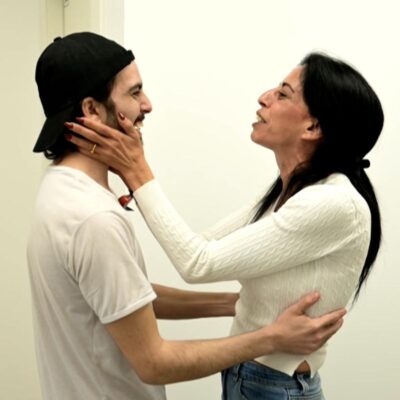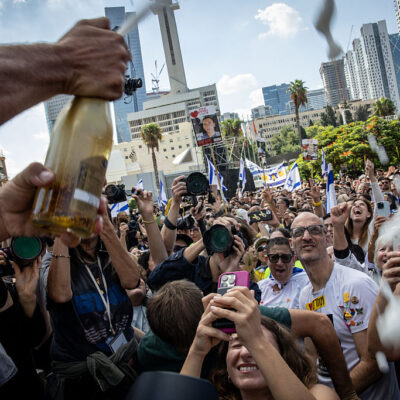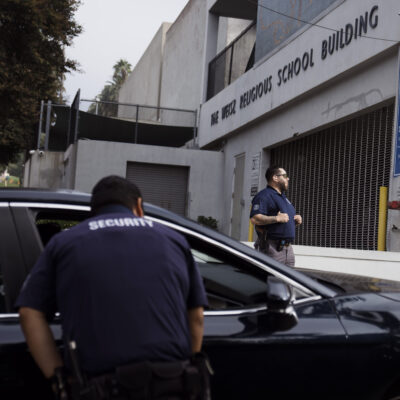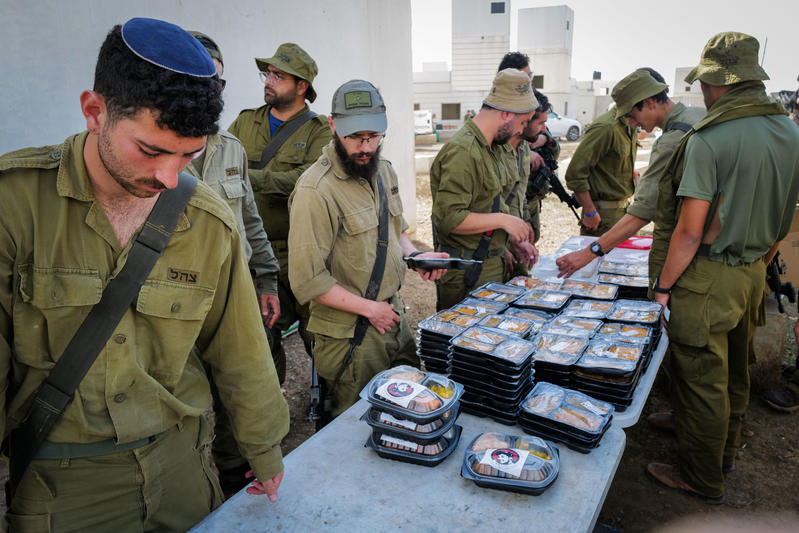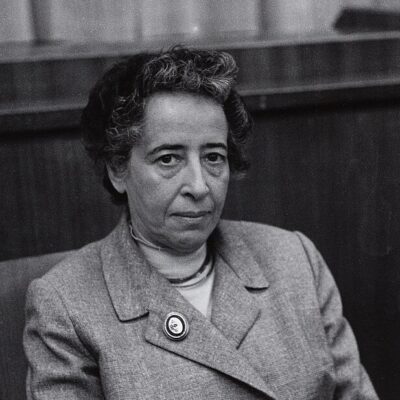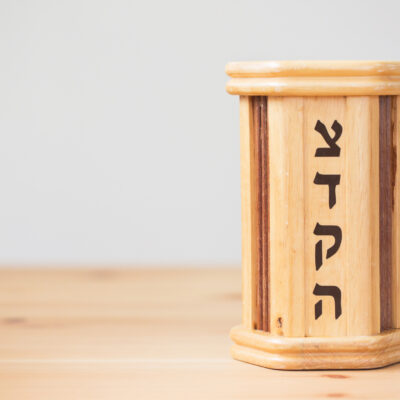WHAT YOU SHOULD KNOW
What comes next for the 20 freed hostages?
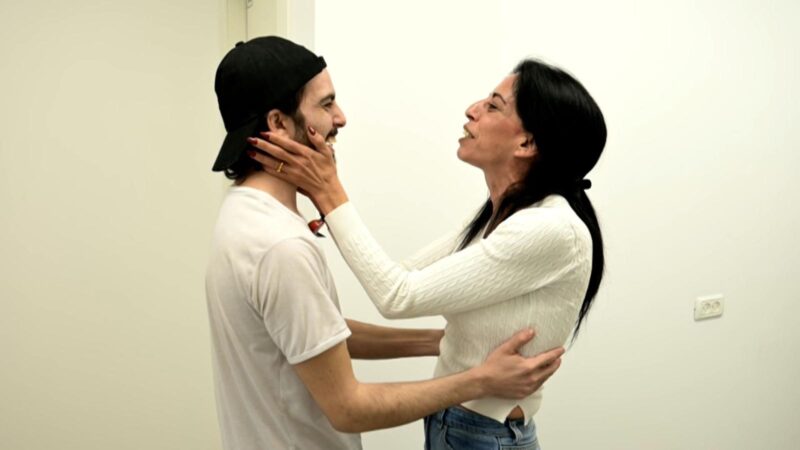
COURTESY/ISRAEL DEFENSE FORCES
Einav Zangauker embraces her son, Matan, who was freed from captivity, at a military base in southern Israel on Oct. 13, 2025.
They watched on jumbotrons in Hostages Square in Tel Aviv, at the site of the Nova festival massacre and at mass gathering points across the country. They watched on television at home. They watched on phone screens on the bus and on the sidewalk. In synagogues across the country, after saying, “Give thanks unto the Lord, for God is good,” they recited the prayer for the hostages, pleading for it to be for the last time.
For Israelis — and for their supporters and Jews around the world — the release of the hostages was the only focus of the day, coming on the eve of the Simchat Torah holiday, on the eve of the second anniversary by the Hebrew calendar of the Oct. 7 terror attacks, when more than 250 people, living and dead, were kidnapped by terrorists. Over the past two years, more than 200 of them have returned to Israel, primarily through negotiated ceasefire deals, along with a small number through military operations.
Shortly after 9 a.m. Israel time, the first seven of the remaining 48 hostages — 20 living, 28 slain — were handed over to Israeli forces in Gaza by the Red Cross. At roughly 9:30, they crossed the border back into Israel, en route to Israel Defense Forces’ Reim base, just outside the Strip, where they met their families and received a more thorough medical check. From there, they traveled to hospitals in central Israel that had prepared special recovery wards for them, where they will stay until cleared to leave. The remaining 13 living hostages were handed over to the Red Cross soon after 10 a.m. and made the same journey, entering Israeli territory shortly after noon. (The remains of slain hostages are scheduled to start to be handed over on Monday afternoon, though the process is expected to take longer and may not be completed in the coming weeks.)
“They were kept underground, 30 meters [100 feet] underground, most of the time, in the dark with no clear air, with no sunshine. And our nightmare is finally coming to an end now. And tomorrow morning, I’m going to hug my son for the first time after two years,” Ilan Dalal, whose son Guy Gilboa-Dalal was taken captive from the Nova festival, told reporters on Sunday night.
“The only thing that I want to do is to hug him, to smell him and to tell him that his nightmare is over, that he’s now safe and he’s with us. This is the only thing we’re going to do… And after that, with his own rhythm, we’ll see what Guy’s condition is and we’ll get on our way.”
Simha Kameri, a social worker who has been assisting hostage families, told eJewishPhilanthropy that she knows that many people want to help the returning captives, to make sure that they are provided for and get the support that they need. Kameri said she is aware of the care packages that have been provided to the returning hostages by donors, the iPhones, clothes, toiletries and blankets. But in the immediate term, the most important thing for the returning hostages is getting time in the embrace of their families and closest friends, as well as the medical assessments and care, she said..
“When they come home, they need time — first and foremost — to get better, physically. They will be in the hospital. We don’t know what condition they will be in,” Kameri said. “They want to be with their loved ones, whom they haven’t seen in 2 years. They need their privacy. That’s what they need for the first 48 hours. Everyone is on a ‘high’ right now, but let’s see how they are after their initial medical checks. Only then will we be able to identify their needs.”
The returning hostages will likely require a good deal of support — mental, physical, social and financial — for years to come, though each person will be different.
“We don’t know what they’ll need. I imagine they’ll need a lot of things: treatments, therapy sessions, maybe further down the line, a vacation — to relax and see other things, but not yet. Now, it’s just about physical health. Just physical health. In another day or two, we can try to check on them,” she said.
Speaking alongside Dalal, Tal Shoham, who was released in February after being taken hostage with his wife and two small children, who were freed in the November 2023 ceasefire, told reporters that he has not experienced post-traumatic stress disorder symptoms, unlike other freed captives whom he said have.
“I specifically didn’t suffer from most of the post-trauma effects, and I feel blessed for that. I have two little children and a beautiful wife who need me, and it gives me the power to keep going on,” Shoham said.
“But in general, it’s a really long process… After all the cameras are off, the former hostages will need to deal with all the things that they went through, waking in the night thinking they are still in the tunnels, with memories that will overwhelm them day after day after day, with getting new information about their loved ones who were murdered or were kidnapped or went through awful things and difficult times. And this is without including the fact that most of them were starved,” he said. “I can say that, in my experience and my family’s experience, even after almost two years that my wife and children are at home and after eight months that I’m home, we are still dealing with things that come up every day, every week.”
In the short term, Kameri said that the families of hostages — both immediate relatives and extended families — can use support. For the past two years, the families have been fighting tirelessly to secure their loved ones’ release from captivity, which has taken a tremendous toll on many of them.
“Now there may be the collapse of some families. Some of them have [already] gotten divorced… Their [captive] sons may not know about that. There have been illnesses — one person had a heart attack, another developed an aggressive form of cancer,” she said.
In the immediate term, the families could use meals and other “treats” to show that they are being thought of and cared for, Kameri said, noting that immediate family members are staying at the hospitals with their loved ones while other relatives are staying at the Kfar Maccabiah village in central Israel.
In the longer term, most of them could use “day-to-day” help — cooking, cleaning, gardening — so that the relatives can focus all their attention on helping their freed loved ones, she said, noting that she lives near a hostage family and has been doing so.
Once the freed hostages have had a chance to recover physically and spend time with their families, then social workers and other mental health professionals can begin assessing their other needs, Kameri said.
“Talk to me in a week, and I’ll know better,” she said. “Right now, we’re all just so terribly excited to see them.”

 Add EJP on Google
Add EJP on Google